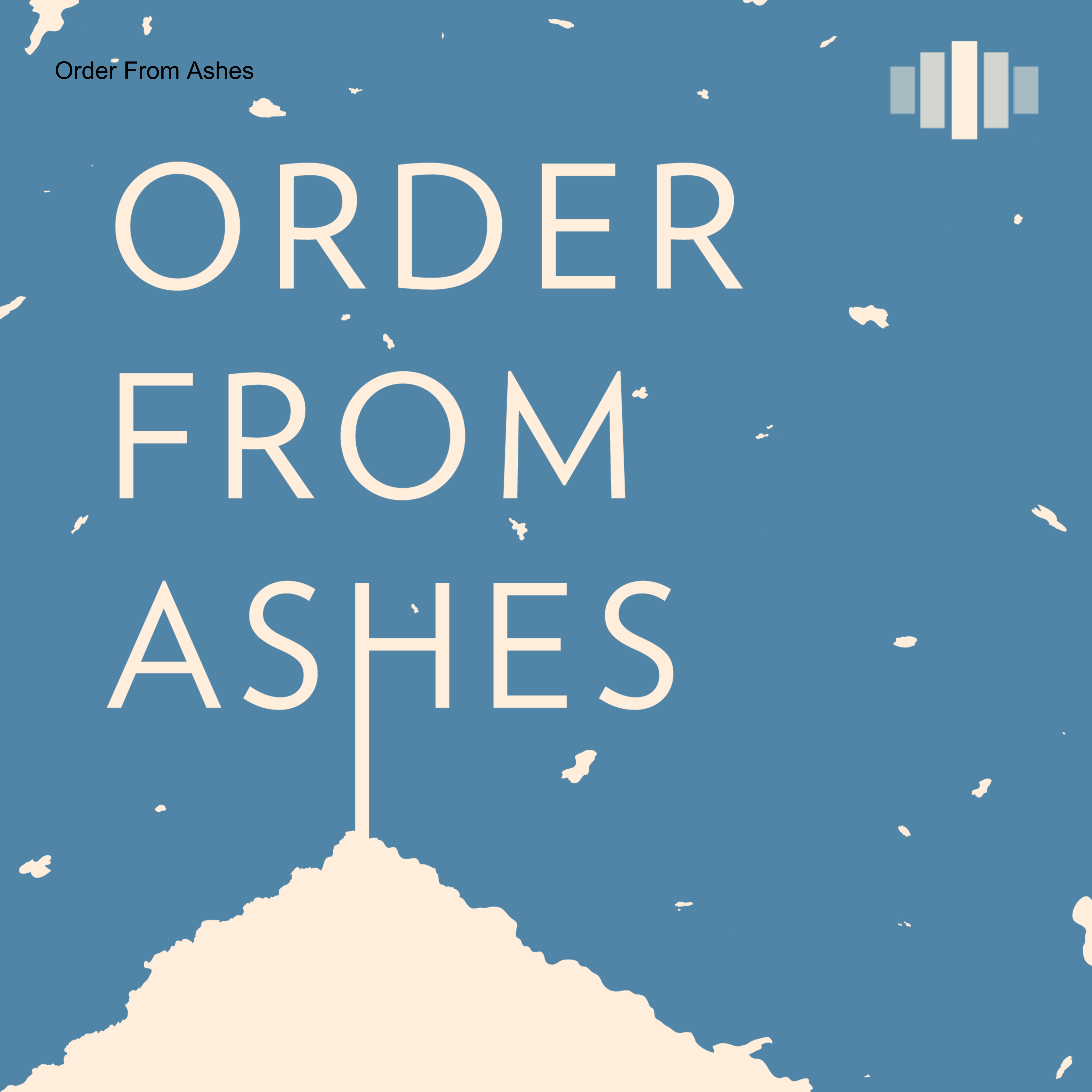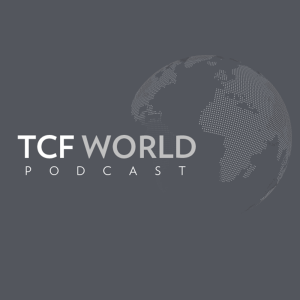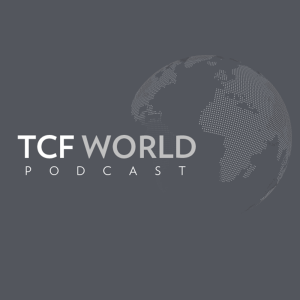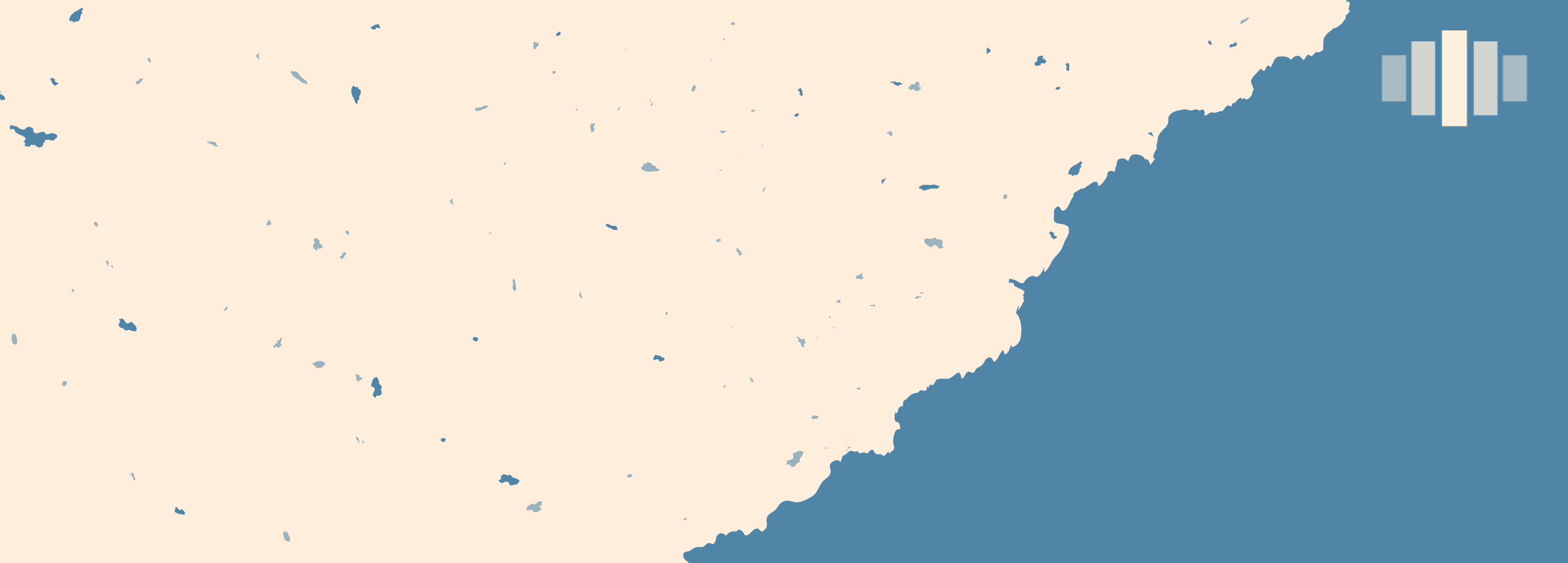
Today’s world is in unprecedented flux. Rights and citizenship are under assault. Authoritarianism is on the rise. No single country can dictate the rules. The Middle East lies at the cutting edge of the crises of our age, with every world power, including the United States, deeply involved. Host Thanassis Cambanis interviews activists, researchers, and decision-makers about the problems of our time, and possible solutions. This podcast is produced by Century International. Our research focuses on the human impact of global policy. We are independent, critical, and progressive. Find our work at https://tcf.org/topics/century-international/.
Episodes

Tuesday Jan 28, 2020
Rupture in the Iraq–America partnership
Tuesday Jan 28, 2020
Tuesday Jan 28, 2020
Years of tension and slights between the governments of Iraq and the United States came to a head after the United States breached the terms of its partnership with Iraq with the assassination of a group of government officials outside Baghdad International Airport.
Now Iraq is asking the United States to withdraw its troops, and the United States is threatening sanctions against Iraq—one of its most important strategic partners in the Arab world.
How will this crisis affect security in Iraq and the resurgence of the Islamic State? How much of the relationship can be salvaged? What will be the costs for Iraq, the United States, and the surrounding region?
Participants include:
- Sajad Jiyad, managing director, Bayan Center
- Maria Fantappie, special adviser, Centre for Humanitarian Dialogue
- Thanassis Cambanis, senior fellow, The Century Foundation
Sajad Jiyad is the managing director of Al-Bayan Center for Planning and Studies in Baghdad.
Maria Fantappie is a special adviser on the Middle East–North Africa region at the Centre for Humanitarian Dialogue in Switzerland.

Monday Dec 09, 2019
Dubai Ports World and a New Form of Imperialism
Monday Dec 09, 2019
Monday Dec 09, 2019
A new report out today from TCF report examines Gulf expansionism through a case study of the Emirates-based company Dubai Ports World (DP World). This multinational is one of the world’s leading global port operators and logistics giants—and a source of power for the United Arab Emirates.
A close look at its operations in the Horn of Africa reveals the ways that a government can exert control through a modern state-chartered company. A closer look at the operations of DP World also casts light on a key driver of disastrous state fragmentation in the Horn of Africa and the Red Sea.
DP World functions like a modern-day version of the British East India Company, serving as both a foreign policy tool and a profit engine. The analysis in Advani’s report, and our discussion with him here, help explain how governments exert political power outside the confines of traditional statecraft.
Participants include:
- Rohan Advani, researcher
- Michael Wahid Hanna, senior fellow, The Century Foundation
- Thanassis Cambanis, senior fellow, The Century Foundation

Monday Nov 25, 2019
A Better Explanation for Powerful Armed Groups: Hybridity
Monday Nov 25, 2019
Monday Nov 25, 2019
From Libya to Lebanon, Syria, Iraq, Yemen, and beyond, countless militias, parties, “brigades,” “forces,” “battalions,” and “detachments” have emerged to directly challenge the formal state.
These groups form a new category of actor, which draws power from the state, and at the same time competes with the state or even undermines it. The authors of a new report from The Century Foundation discuss the concept of “hybrid actor,” which allows us to make better sense of the pivotal players in conflict zones and shaky states across the Middle East, and beyond.
Participants include:
- Renad Mansour, research fellow, Chatham House
- Dina Esfandiary, fellow, The Century Foundation
- Michael Wahid Hanna, senior fellow, The Century Foundation
- Thanassis Cambanis, senior fellow, The Century Foundation

Tuesday Nov 05, 2019
How Is Iraq Managing Its Oil?
Tuesday Nov 05, 2019
Tuesday Nov 05, 2019
- Samya Kullab, senior correspondent, Iraq Oil Report
- Thanassis Cambanis, senior fellow, The Century Foundation

Monday Oct 14, 2019
Popular Protest Redux in Iraq and Egypt
Monday Oct 14, 2019
Monday Oct 14, 2019
Nearly a decade after the Arab uprisings gripped the region, large-scale protests have broken out in Iraq and Egypt. In Iraq, arguably one of the most open political systems in the Arab world, authorities struck the protesters with surprising levels of violence. In Egypt, the surprise was that protests took place at all, given the historic levels of authoritarian repression.
What do the protests reveal about state failure—and what kind of pressure do they exert on governments to change? Iraq and Egypt, like many governments in the region, have rigid systems that appear incapable of serious changes in policy or governance. What can we learn from the latest round of revolts?
Participants include:
- Maria Fantappie, Iraq senior adviser, International Crisis Group
- Michael Wahid Hanna, senior fellow, The Century Foundation
- Thanassis Cambanis, senior fellow, The Century Foundation

Monday Sep 30, 2019
Reviving the United Nations
Monday Sep 30, 2019
Monday Sep 30, 2019
This podcast is part of an ongoing TCF series that explores progressive policy proposals for America’s most pressing international priorities.
The United States is by far the most significant donor to the United Nations and has, for much of the UN’s history, been one of its primary boosters. American support for the United Nations has fluctuated, and, since President Trump took office, has plummeted. But Washington’s love-hate relationship with the United Nations and with the compromises and niceties of international diplomacy predates Trump, and has come in for bipartisan criticism.
However, a pressing global emergency like climate change, or another worldwide financial crisis, cannot be solved without the international system. How can the United States revive the effectiveness of the United Nations, so that the international institution can help address ongoing crises and manage burgeoning great-power competition between the United States, Russia, and China?
Participants include:
- Richard Gowan, UN Director, International Crisis Group
- Thanassis Cambanis, senior fellow, The Century Foundation

Tuesday Sep 03, 2019
Rethinking Israel–Palestine’s Stifling Status Quo
Tuesday Sep 03, 2019
Tuesday Sep 03, 2019
This podcast is part of an ongoing TCF series that explores progressive policy proposals for America’s most pressing international priorities.
On this podcast, we learn about the shifting views of Israelis and Palestinians, and the different visions of the future that they are considering in addition to the two states envisioned in the Oslo Accords—including confederation, a single state, annexation, and indefinite occupation.
Politics in Israel–Palestine can seem unpredictable, but some long-term trends are clear. The Israeli electorate has moved decisively to the right, and support for a “two-state solution” has fallen to historic lows among both Palestinians and Israelis.
What are the possibilities for the United States to affect Israeli policies on settlements and annexation of occupied territory?
Participants include:
- Dahlia Scheindlin, political scientist and fellow, The Century Foundation
- Thanassis Cambanis, senior fellow, The Century Foundation
- Michael Wahid Hanna, senior fellow, The Century Foundation

Tuesday Aug 13, 2019
Downgrading America’s Commitments in the Middle East
Tuesday Aug 13, 2019
Tuesday Aug 13, 2019
This podcast is part of an ongoing TCF series that explores progressive policy proposals for America’s most pressing international priorities.
America has had an inflated military presence since 9/11, especially in the Middle East. Defense budgets are historically bloated, and policymakers have avoided making choices about closing bases and reducing troop deployments.
Political support is waning for the forever war and politicians from both major American parties agree that the United States needs to scale back its global military entanglements and set real priorities. The Middle East, many of them say, has occupied policy attention that should be directed to other, more pressing priorities.
Now the tough questions concern the details: What would a right-sized U.S. military presence look like in the Middle East? If the U.S. military shouldn’t have quite so many bases in the region and troops deployed, what is the right amount? What wars should the United States be prepared to fight? How, politically, can American leaders sell the idea of containing threats instead of setting impossible but popular goals, like entirely eliminating terrorism? What’s a reasonable budget?
Participants include:
- Mara Karlin, director of strategic studies, Johns Hopkins School for Advanced International Studies
- Michael Wahid Hanna, senior fellow, The Century Foundation
- Thanassis Cambanis, senior fellow, The Century Foundation

Thursday Jul 18, 2019
A Smarter Iran Policy
Thursday Jul 18, 2019
Thursday Jul 18, 2019
This podcast is part of an ongoing TCF series that explores progressive policy proposals for America’s most pressing international priorities.
As part of our running series exploring in detail what an alternative progressive U.S. foreign policy would look like, on this episode of TCF World we turn to Iran. We analyze what an effective foreign policy toward Iran should look like, taking into account Iran’s destabilizing record of expansion and militarism in the Middle East.
Tensions with Iran are as high as they’ve been in decades, after U.S. President Donald J. Trump withdrew from the nuclear deal negotiated by his predecessor. Today, the most pressing matter is how to avoid an escalation with Iran that leads to war.
If and when this crisis passes, what are the options for salvaging the deal, or managing the fallout of its collapse? The original nuclear deal was negotiated in 2015 and is known by its formal title, the Joint Comprehensive Plan of Action (JCPOA). Many of the deal’s supporters, including several candidates for the Democratic presidential nomination, argue that the United States should reenter the original deal after Trump is no longer in office. We explore how the original deal could be revived, or what could take its place if it has completely collapsed by the time Trump’s successor takes office in 2021 or 2025.
Participants include:
- Ariane Tabatabai, associate political scientist, RAND Corporation
- Dina Esfandiary, fellow, The Century Foundation
- Michael Wahid Hanna, senior fellow, The Century Foundation
- Thanassis Cambanis, senior fellow, The Century Foundation

Monday Jun 17, 2019
Defining a Progressive Middle East Policy
Monday Jun 17, 2019
Monday Jun 17, 2019
Progressives still have to figure out how to translate into policy widely shared concerns with global inequality, authoritarianism, climate change, and reflexive militarism. In this episode, Thanassis Cambanis, Michael Wahid Hanna, and Daniel Benaim discuss the contours of a future progressive foreign policy in the Middle East, what’s missing from the current debates, and the limits of American power.
Participants include:
- Thanassis Cambanis, senior fellow, The Century Foundation
- Michael Wahid Hanna, senior fellow, The Century Foundation
- Daniel Benaim, senior fellow, Center for American Progress, and visiting assistant professor, New York University
